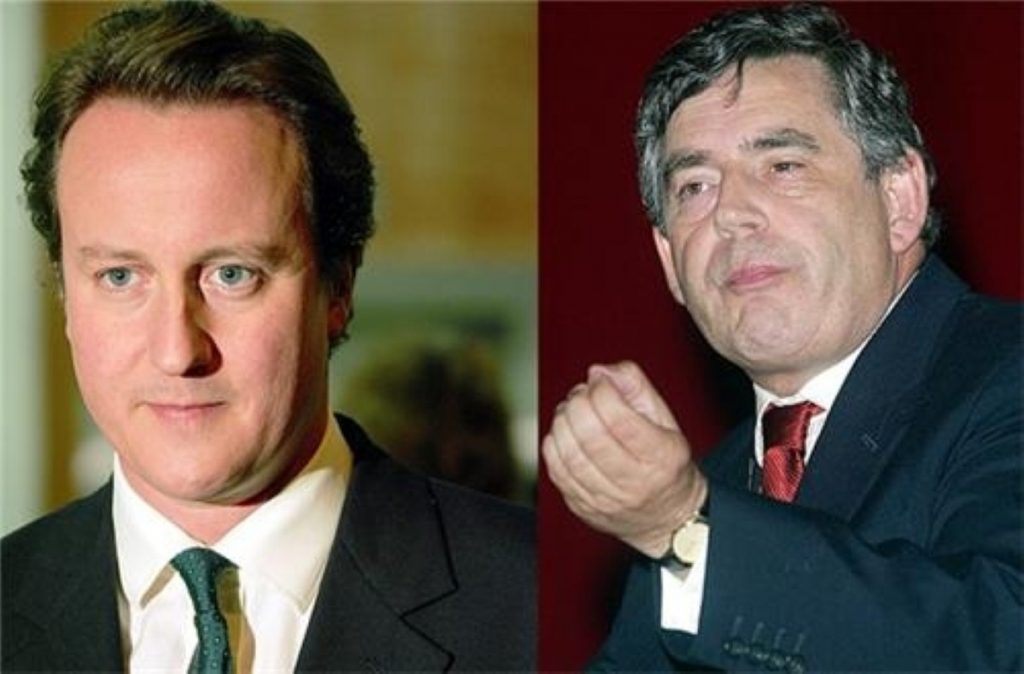‘Brown bounce’ flattens Cameron
Gordon Brown has ousted David Cameron from the parliamentary honeymoon suite and is enjoying a strong lead over his rival.
After his first month in Number 10, Mr Brown has received a positive reception from voters.
In contrast, David Cameron has ceased to attract new Conservatives supporters and is provoking increasing disquiet within his own party.
Mr Brown has undergone an exceptionally challenging first four weeks – responding to a failed terrorist attack, diplomatic fallout with Russia and unprecedented flooding across England – and has still achieved the much hoped for “Brown bounce”.


Mr Cameron by contrast has seen his party slip to third place in Ealing Southfield and Sedgefield – despite campaigning personally in west London.
He also suffered the embarrassment of being asked on Rwandan television why he was in Africa and not visiting his flooded Witney constituency.
The latest Guardian/ICM poll hands Labour a six point lead, but more importantly for the prime minister, shows Mr Brown’s personal appeal is surpassing Mr Cameron’s.
The Tories are now attracting the lowest share of the vote since the demise of Michael Howard in 2005. Support has slipped three points to 32 per cent. Labour have fallen by one per cent but still poll a clear lead at 38 per cent.
More than one in five voters say they think less of the Tory leader since Mr Brown entered Downing Street, while the same proportion say their opinion of Mr Brown has improved over the past month.
The Conservatives had attempted to portray Mr Brown as a continuation of Tony Blair’s unpopular government but this appears to have failed, set against Mr Brown’s own mantra to “listen and learn” and “change”.
Nearly two-thirds of voters think Mr Brown has brought a new style of government and 60 per cent think he has new policies.
Many predict Mr Brown will have to call an early election to capitalise on his “new” image, which will also allow him to benefit from the ‘Brown bounce’.
The poll shows the majority of voters want an election within the year, with 57 per cent backing a vote this autumn or in the spring.
The Conservatives initially pressed the prime minister to call an election, challenging him to seek a democratic mandate.
However, with Mr Cameron suffering in the polls the appeal of a general election may be dented.
The Tory leader is facing increasing criticisms from his own party over his attempt to modernise the party.
Crucially, today’s Guardian/ICM poll show this modernisation strategy is also failing to win over new voters.
More than two in five Conservative voters say they like the party but dislike David Cameron, with a quarter of all voters agreeing.
Only three per cent of Conservative voters say they like Mr Cameron but dislike his party, while among the electorate as a whole, just 18 per cent say they like Mr Cameron despite disliking the Tories.
In contrast, three-quarters of Labour voters say they like both Mr Brown and the Labour party, while nearly two in five of the electorate agree.
The Liberal Democrats were the only party to gain in this month’s poll, climbing two points to 20 per cent. This reflects the party’s recent gains in last week’s by-elections.









